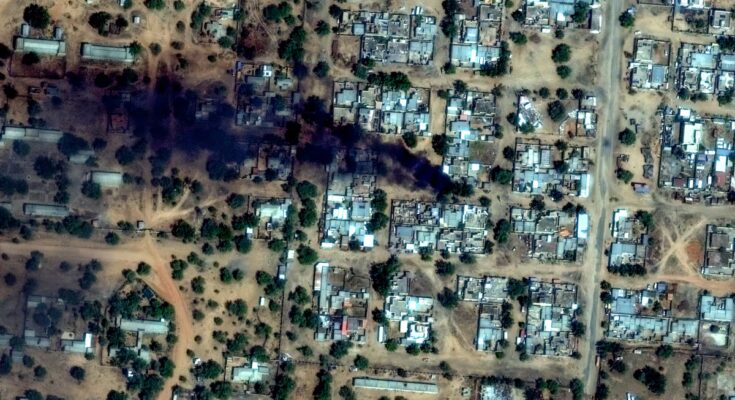The humanitarian crisis in North Darfur has reached alarming levels. Since Sudanese Rapid Support Forces rebels took control of the strategic headquarters in El Fasher, the capital of North Darfur, in late October, thousands of people have made a desperate journey to Tawila, about 65 kilometers away, to escape violence and hunger. Humanitarian workers from Plan International, an NGO present in Sudan since 1977, describe an extreme situation, with families exhausted, wounded and deeply traumatized.
This is the story of Omer Diab (fictitious name to preserve his anonymity), an operator of the organization that serves families fleeing El Fasher from Tawila:
“It was very difficult to see the state in which the families arrive. The distance between El Fasher and Tawila is 65 kilometers. Normally, solo travelers take about two days on foot or by donkey. But some families with children and elderly people took up to five days to complete the journey.
Unfortunately, not all those who fled El Fasher managed to arrive. Many of those who have done so find themselves in a state of extreme anguish, clinging to the hope of being reunited with family members from whom they were separated along the way. They witnessed or were ambushed by militias and had to beg for their lives.
Many arrive only dressed. No food, no water, no nothing
Many arrive only dressed. No food, no water, no nothing. Some had to hand over their valuables to protect themselves. Many more people arrive injured, with gunshot wounds, and exhausted after carrying their loved ones for days. They need hospitalization and urgent care. The streets are in terrible condition, with dead bodies everywhere.
The impact of a year and a half of siege
Many of the families we spoke to have not had access to food for more than a year due to the siege. Most are severely malnourished and their health has seriously deteriorated due to the fatigue of the journey. Some simply fall to the ground as soon as they arrive.
For months they survived by feeding on animal feed. Women, boys, girls, the elderly and people with disabilities were the most affected. It is heartbreaking to see people collapse when they arrive at the shelter. Many of them we have to take directly to the hospital before registering them in the camps. We also have family members affected by this crisis in El Fasher.
Most are severely malnourished and their health has seriously deteriorated due to the fatigue of the journey. Some simply fall to the ground as soon as they arrive.
Some arrived safely in Tawila. We still know nothing about the others and fear the worst. One of our colleagues lost his father and brother after being kidnapped. We don’t know what became of them. They were very difficult days. Men and boys are particularly at risk of abduction, detention, summary executions and torture.
What struck me most was the physical and mental state of the families upon arrival. Many are so emaciated that not even their relatives recognize them. After months without access to food or water, and now forced to walk for days to escape the conflict, they are too tired and hungry. If they don’t call you by name you can’t recognize them.
Furthermore, there is no communication between families, many camp out in reception centers waiting for the arrival of their loved ones. It is heartbreaking to see and feel their desperation.
Families tell us they don’t feel safe. Many of those we receive have already moved to El Fasher after the attack in Zamzam camp on April 15 and have now had to flee again. They are frustrated because they feel like they can’t find respite.
Nobody is sleeping. We haven’t been able to rest since this thing started either. However, as humanitarian workers, we remain steadfast, knowing that we must respond despite the challenges. “We focus on solutions, not obstacles.”



